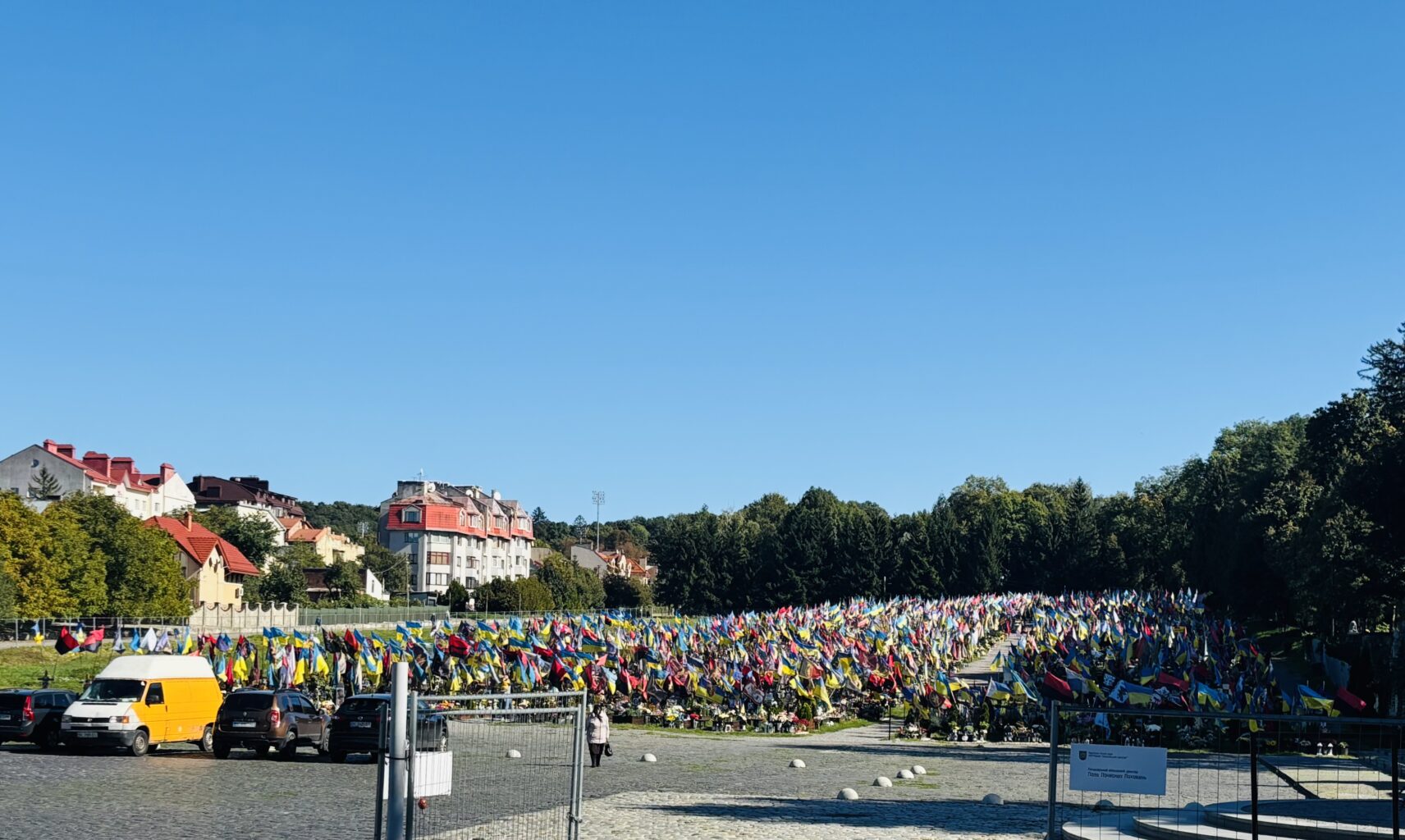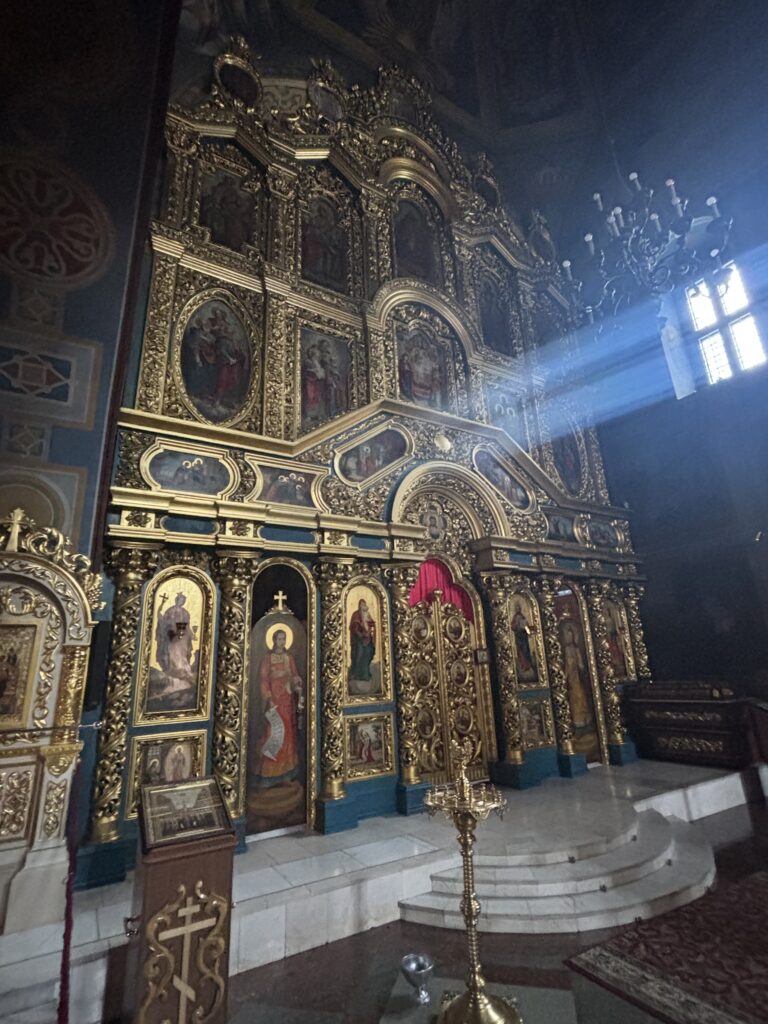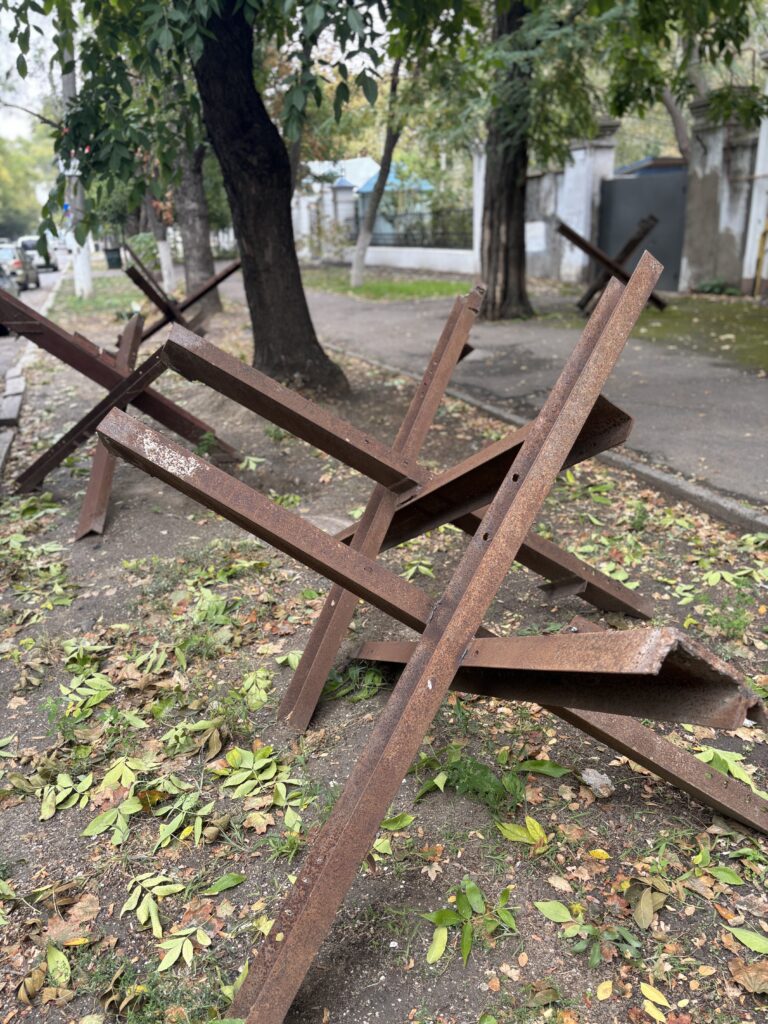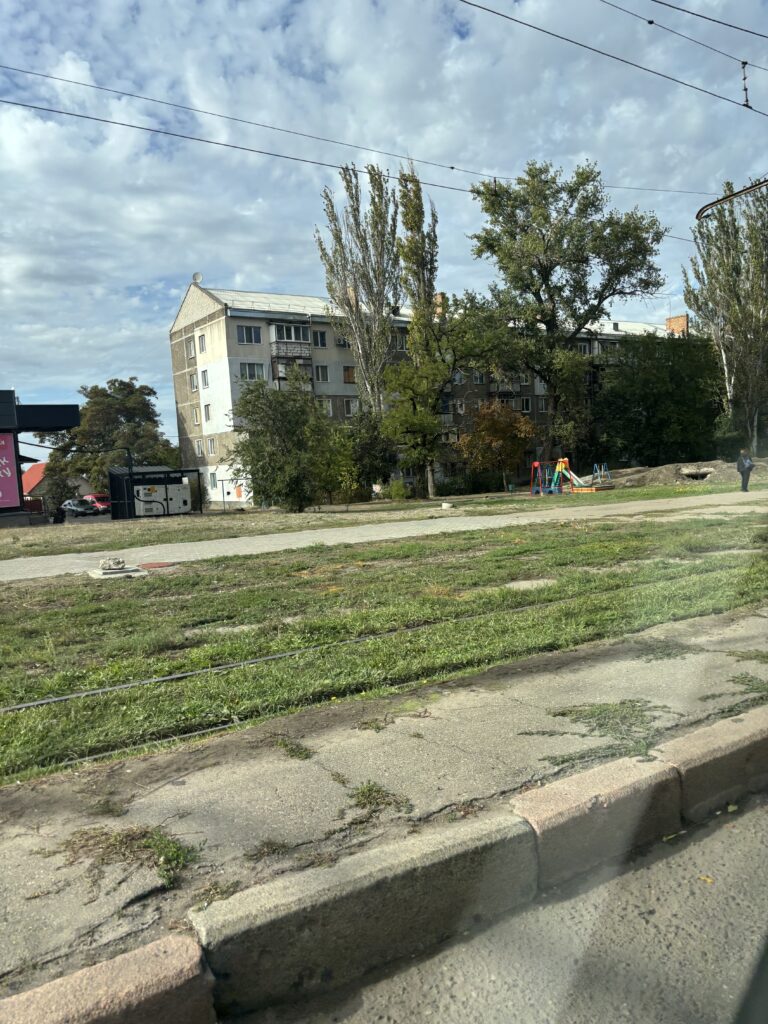Professor Jaroslav Skira is the Fr. Terrance Forestell, CSB, Dean of the Regis St. Michael’s Faculty of Theology (Toronto School of Theology.) He is a Fellow of the Metropolitan Andrey Sheptytsky Institute of Eastern Christian Studies, and Associate Professor, Centre for European and Eurasian Studies at the Munk School of Global Affairs & Public Policy (University of Toronto).
I went to a war zone – to Ukraine. Russia started an unjust war there.
I was in Ukraine 35 years ago, before the fall of the Soviet Union. What I saw then was a deplorable system of totalitarianism. No freedom of religion; no freedom of conscience; no solicitude. Today that same reality exists in Russian-occupied regions of Ukraine.

On this trip, though, what I saw were beautiful Ukrainian cities and villages. I saw a country maturing into a modern democracy. In the main square of the major city of L’viv, where three decades ago I saw a statue of a communist mass-murder, this time I saw public spaces filled with groups of happy young people seemingly oblivious to the reality of the war. But the reality of war was there. I saw historic monuments and buildings surrounded by sandbags. I saw centuries-old churches with windows boarded up and museums hiding their invaluable collections in storage as protection from missile strikes.
It was back in 1990, on my first trip, that I met my paternal grandmother and aunt, even before my dad had ever come to know them. Take that in – my dad had never really known his mother and sister. In his infancy, at the end of World War II, he was separated from this family when the Soviet Union gobbled up much of Eastern Europe and forcibly re-settled this closest of families to southern Ukraine. (He finally met his mother and sister a few years later). On this trip I would once again visit his surviving sister – my aunt.
People asked me if I was scared to go to Ukraine, if I felt I was in any danger, or what my wife thought of me going there. Going to Ukraine, to a war zone, was exactly what I expected … well, almost. I think I was prepared for being woken up at night to the sound of air-raid sirens; for sleep depravity. I was prepared for difficulty travelling, for blackouts, for the cold.

But the one thing that I wasn’t quite prepared for was seeing the prevalence of so much grief and trauma – and yet resilience. Everywhere I went, I saw memorials to soldiers – women and men – killed in action, prisoners of war, or missing in action. I heard stories of terrible deaths due to Russia’s brutal war on Ukraine. My eyes welled up with tears when I heard these stories. They still do so today – right now, in fact, as I write.
One of the most difficult and emotionally painful parts of my trip was visiting a famous cemetery in L’viv (western Ukraine) with a family member. This was her first visit there. I soon found out why she hadn’t visited before. She lay flowers at the graves of two young soldiers she knew well. It had been too painful for her to come here before.
I, too, bought some flowers to pay my respects, not knowing where I would place them. It was there that a mother came up to me and asked me if I ‘had anyone there.’ Her soft words betrayed a mother’s deep grief of the loss of a son, of wanting to embrace him one more time, of the lament of not being able to play with grandchildren that she might have had. His grave was very fresh. She had waited a year for news about him. They had to identify him by DNA. All I could offer was a hug and a promise of a prayer. I asked her if I could lay my flowers at his grave. His name was Roman. As I write – my eyes again are welling-up with tears.
As I sat with family, friends, and even strangers, I asked how they were doing under the war. I was repeatedly amazed by their resilience. Despite the war, despite the trauma and fear of death, they continued to live, to work, to love and to hope for joy and peace to return. Not a single person wanted the ‘Russian world’ to come to them.
I tried to stay in places where I thought Russians wouldn’t strike – American hotels with bomb shelters, near embassies, or near major Christian religious sites so necessary for Russia’s delusional imperial mythology. Ukraine has a remarkable air-defence system, with an air-raid warning app. And yes, I did hear explosions and anti-aircraft fire.

I went to a war zone hoping I could do some good, perhaps some modest acts of kindness. If only for a moment, could I bring some joy? or perhaps a warm smile to help forget the war? or, even just simply to listen? I didn’t want to be like those servants in that biblical parable condemned for not sharing their gifts.
Part of my trip was to participate in an event organized by the Ukrainian Greco-Catholic Synod of Bishops. Ukrainian Eastern Catholic theologians and formators gathered to reflect on contemporary challenges in theology and ministry. I went as an invited delegate from the Metropolitan Andrey Sheptytsky Institute of Eastern Christian Studies to discuss how Ukrainian universities, colleges, and seminaries could collaborate, especially in these terrible times of war. I also brought messages of solidarity from our Regis St. Michael’s Faculty of Theology and Toronto School of Theology colleagues, telling our friends in Ukraine that we prayed weekly for peace. My plenary address was in a bomb shelter at the Ukrainian Catholic University in L’viv.
To make the most of my trip, I also went to Ukraine’s capital Kyiv, where I met with colleagues from seminaries, theological schools and universities. Here the goal was the same – messages of solidarity, perhaps enjoying moments of levity and joy, and wanting to be present to colleagues and students.
My train to Kyiv passed through Bucha and Irpin, places of the most savage cruelty and depraved violence of Russian soldiers against a civilian population. Images of dead bodies littering the streets are forever etched into my memory. Social media has brought the war, unfiltered, all too painfully close to the world. That kind of evil violence cannot be unseen.
My last stop was to see my aunt and family. I travelled to the outskirts of the southern city of Mykolaiv, about an hour away from the front lines. When I told them I was visiting Ukraine, they were overjoyed – my aunt even said she had a premonition that there would be good news that day. I initially asked whether it was possible for them to meet me in western Ukraine, a relatively safer part of the country.
With an octogenarian aunt, travel was difficult. The only way to meet the entire family was to go to them. I couldn’t tell them I couldn’t visit them because of the war – they lived that reality daily! My aunt lived through years of totalitarianism, only recently experiencing a few decades of democratic freedoms. Now in her senior years, she was again experiencing that same violence.
I saw the cellars in which families sheltered during the cold winter months at the start of the war – dirt floors, with no electricity, gas, running water, or washrooms with small cast iron stoves for heat. I saw upfront the damage a Russian missile could do to an eight-story building. But we laughed, shared stories, and embraced. So, for a moment, there was joy and peace.

It was surreal to see an army bunker in front of an apartment complex, right next to a children’s playground! What a violation of the innocence of children, to have to be confronted with threats of Russian-state abductions, forced relocations, cultural genocide, and even possible death, supported by a quasi-religious ideology of the Russian Orthodox Church. To those of us in Canada, this should remind us of the horrors of the residential school system’s systemic violence against Indigenous peoples and their children, often perpetrated by the churches. All of this is abhorrent.
On my last night in Ukraine, my air raid app woke me up in the middle of the night. I heard explosions, perhaps anti-aircraft fire or missiles hitting their targets. Those air raid sirens were the eery sounds of approaching death. You hoped that the morning would bring good news, but deep down you knew that tragedy always followed. That day, I saw an announcement from a high school – their grade 10 student and her entire family were killed. At moments like that, I felt like a Psalmist, praying to God in gratitude for those who got to live another day while, in the same breath, cursing those vile people that brought death our way.
It took me almost four days to get home. First, an 18-hour train ride then a stopover in western Ukraine on the way to a 6-hour drive to a Polish airport for an early morning flight home. You can’t take an airplane within Ukraine, and you have to wait hours and hours to cross borders due to heightened security. I was prepared for this.
I went to a war zone. I know too that I brought some joy and compassion – if only for a few precious moments.
Read other InsightOut posts.
